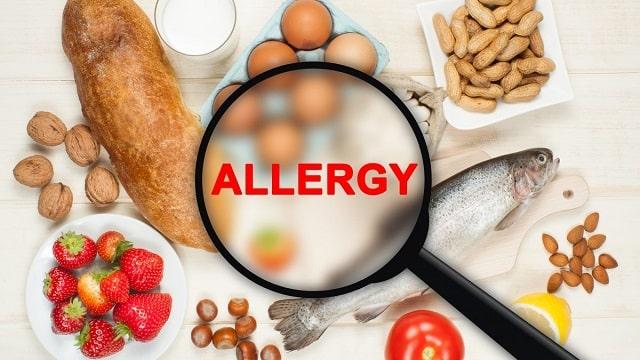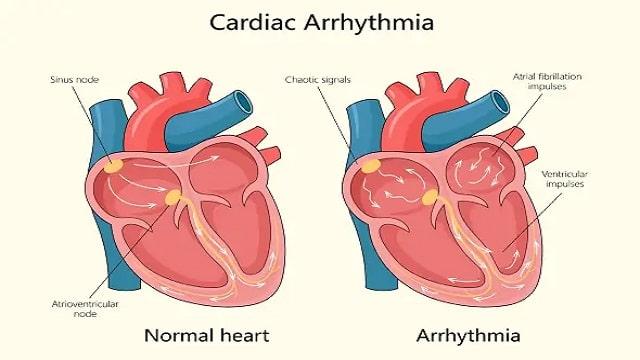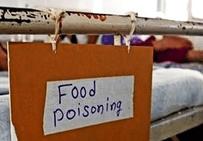
Food Allergies Symptoms, Risk Factors & Treatment | Diseases List A-Z
Food Allergies A food allergy is a condition in which the immune system mistakenly assumes a substance, such as a protein in a particular food, is harmful to the body.
As a result, the immune system will react to food substances that are classified as dangerous or allergens.
Even small amounts of an allergenic food can trigger signs and symptoms such as digestive problems, hives or swollen airways.
In some people, this allergy can cause severe symptoms or even a life-threatening reaction called anaphylaxis.
In addition, this condition can be acute or sudden, but it can also be chronic or last for a long time.
Food allergies are often confused with another health condition, food intolerance.
However, they are two different health conditions.
Because food intolerance is a reaction from the digestive system.
It has nothing to do with antibodies like food allergies.
Food Allergy Symptoms A person who experiences this condition can experience various symptoms in his body.
A person can experience these symptoms with mild or high intensity depending on the amount of allergen they consume.
The symptoms include: A reddish rash that appears on the surface of the skin.
Itchy rash.
Tingling in the oral cavity.
Difficulty swallowing.
Swelling of the mouth, face, and other parts of the body.
Nausea and vomiting.
Itchy eyes.
Sneeze.
Shortness of breath or labored breathing.
Dizzy.
Stomach ache or diarrhea.
Dry, cracked, red, and itchy skin.
The genital and anal areas appear reddish.
Constipation.
Heartburn.
More frequent bowel movements.
There is mucus or blood in the stool when defecating.
Pale skin.
Seems more fussy in babies.
In addition, food allergies in some cases can cause anaphylaxis, the symptoms of which can include: Heart beats fast.
Hard to breathe.
Sudden anxiety and fear.
Blood pressure drops drastically.
Unconscious or fainting.
Food Allergy Risk Factors Anyone can experience it, but there are several factors that can increase the risk, such as: 1.
Family history Allergies can run in families.
If a close family member has asthma or any allergic disease, including food allergies, eczema, and seasonal allergies, the person is more likely to develop the condition.
2.
History of other food allergies If you already have an allergy to one food, you may be at higher risk of developing allergies to other foods.
Likewise, if you have other types of allergic reactions, such as hay fever or eczema, your risk of developing a food allergy is greater.
3.
Age Babies and children are more susceptible to food allergies.
However, as they get older, their digestive tracts become more mature in digesting foods that can trigger allergies.
4.
Gut bacteria Some studies suggest that people with peanut or seasonal allergies may have altered gut bacteria conditions.
Foods That Are Prone to Causing Allergies There are several types of food that accumulate approximately 90 percent of allergies that people have.
These foods also fall into the category of eight major allergens.
Here are the types of food and drinks.
Egg.
Fish.
Milk.
Nuts that come from trees.
Peanuts.
Seafood.
Soya bean.
Wheat.
Causes of Food Allergies Not a few people have difficulty finding the cause of their allergies.
However, this condition usually occurs due to the following: 1.
Immune system Antibodies are special proteins produced by the immune system to protect the body.
Well, antibodies work by identifying potential dangers that threaten the body, such as bacteria and viruses.
The job of antibodies is to signal the immune system to release chemicals to kill the threat and prevent the spread of infection.
In the most common type of allergy, antibodies known as immunoglobulin E (IgE), mistakenly target certain proteins in food as a threat.
IgE can cause several chemicals to be released, the most important of which is histamine.
2.
Histamine Most of the typical symptoms that appear during an allergic reaction are due to histamine.
Well, this substance can cause symptoms such as: Dilation of small blood vessels, so the skin becomes red and swollen.
Affects the nerves in the skin, causing itching.
Increases the amount of mucus produced in the lining of the nose which causes itching and burning sensations.
In most cases, histamine release is limited to a specific part of the body, such as the mouth, throat, or skin.
3.
Non-IgE mediated allergies Another type of food allergy is non-IgE-mediated food allergy, which occurs due to different cells in the immune system.
This condition is much more difficult for doctors to diagnose because there is no accurate test to confirm a non-IgE-mediated food allergy.
This type of reaction is mostly limited to the skin and digestive system, causing symptoms such as heartburn, indigestion, and eczema.
In infants, non-IgE-mediated food allergies can also cause diarrhea and reflux, where stomach acid rises into the throat.
4.
Certain foods In children, the foods that most often cause allergic reactions are eggs, milk and milk products, soy, wheat, and nuts.
In adults, foods that often cause allergic reactions are nuts, fish, and seafood.
Food Allergy Diagnosis To make a diagnosis, the doctor needs to ask a number of questions and perform tests.
If symptoms develop rapidly, your doctor may recommend a skin prick test or blood test.
However, if symptoms develop more slowly, your doctor may suggest a food elimination test.
1.
Ask questions First of all, the doctor will ask you several questions about the patterns and symptoms you are experiencing, such as: How long does it take for symptoms to appear after exposure to food? How long do the symptoms last? How severe are the symptoms? Is this the first time these symptoms have occurred? If not, how often do they occur? What foods might be the culprit and how much to consume? Do you have any allergies or other allergic conditions? Is there a history of allergies in the family? Is (or is) the child breastfed or bottle-fed? In children, the doctor may need to assess the child’s weight and size to ensure that their growth is appropriate for their age.
2.
Skin prick test During a skin prick test, your doctor will place a drop of food extract on your arm.
The skin is then pricked with a small lancet, allowing the allergen to come into contact with cells of the immune system.
Itching, redness, and swelling are signs that indicate a positive reaction.
The test is usually painless.
3.
Blood test An alternative to the skin prick test is a blood test.
This test aims to measure the amount of allergic antibodies in the blood to certain foods.
To perform this test, the doctor will take a blood sample for examination in the laboratory.
4.
Food elimination test In a food elimination test, a person must avoid foods that are likely to cause an allergic reaction for 2-6 weeks.
The food is then reintroduced afterward.
If symptoms disappear when food consumption stops, but reappear after the allergic person consumes the food, then this condition usually indicates a food allergy or intolerance.
Food Allergy Complications Food allergies rarely cause serious complications.
However, in severe cases, they can cause serious complications.
Well, here are some food allergy complications that you need to be aware of, namely: 1.
Anaphylaxis In some people, allergies can trigger a severe allergic reaction or anaphylaxis.
This condition can cause life-threatening signs and symptoms, such as: Narrowing and tightening of the airways.
A swollen throat or the sensation of a lump in the throat that makes it difficult for a person to breathe.
Shock with severe drop in blood pressure.
Rapid pulse.
Dizziness, lightheadedness, or loss of consciousness, Seek medical help immediately or go to the emergency room if you or someone around you experiences the above signs.
2.
Atopic dermatitis Eczema or atopic dermatitis is another complication of this allergy.
This condition can cause itchy skin reactions and redness of the skin (eczema).
Food Allergy Treatment The only way to completely treat an allergic reaction is to avoid the food that causes the allergy.
However, there are several things you can do to ease the reaction.
For mild allergic reactions, over-the-counter or prescription antihistamines can help reduce symptoms.
You can take this medicine after being exposed to food that causes allergies to help relieve itching or hives.
However, antihistamines cannot treat severe allergic reactions.
For severe allergic reactions, you may need an emergency epinephrine injection.
If your doctor has prescribed epinephrine for you to use, you should make sure that both you and those around you understand how to operate the injection in an emergency.
In addition, make sure to always have an injection ready in case you suddenly experience an allergy.
Having extra, unexpired epinephrine on hand is also a good safety measure.
Researchers have studied the use of oral immunotherapy as a treatment for food allergies.
This therapy delivers small doses of the food you are allergic to.
The doctor will ask the patient to swallow or place the food under the tongue (sublingual).
Then the dose will be increased gradually under the supervision of a doctor.
Food Allergy Prevention The most appropriate way to prevent allergic reactions is to know and avoid foods that cause allergies.
Always read food and drink labels carefully to see if there are any ingredients that could cause allergies.
If you are visiting a restaurant, ask the waiter about the ingredients on the menu that you want.
The goal is to make sure there are no ingredients that can trigger allergies.
If there are food and drink ingredients that can trigger allergies, ask the chef to remove them.
For children, don’t forget to tell the teacher or childcare staff if your little one has certain food allergies.
.
Related Articles
health
Aquaphobia Symptoms, Risk Factors & Treatment | Diseases List A-Z
October 22, 2024

Aquaphobia is a type of specific phobia that is an irrational fear of something that does not pose much danger.
A person with aquaphobia has extreme fear or anxiety when thinking about or seeing water.
read morehealth
Arrhythmia Symptoms, Risk Factors & Treatment | Diseases List A-Z
October 22, 2024

Electrolyte imbalance in the blood.
Electrolyte levels, such as potassium, sodium, calcium, and magnesium can interfere with the heart’s electrical impulses, resulting in arrhythmias Drug use.
read morehealth
South Africa: Over 40 students hospitalised for suspected food poisoning
October 23, 2024

The information contained in this website is for general information purposes only.
The information is provided by BhaskarLive.
read more